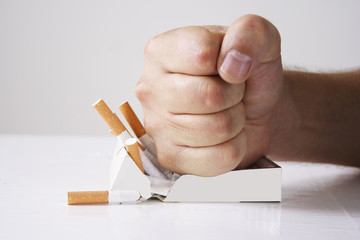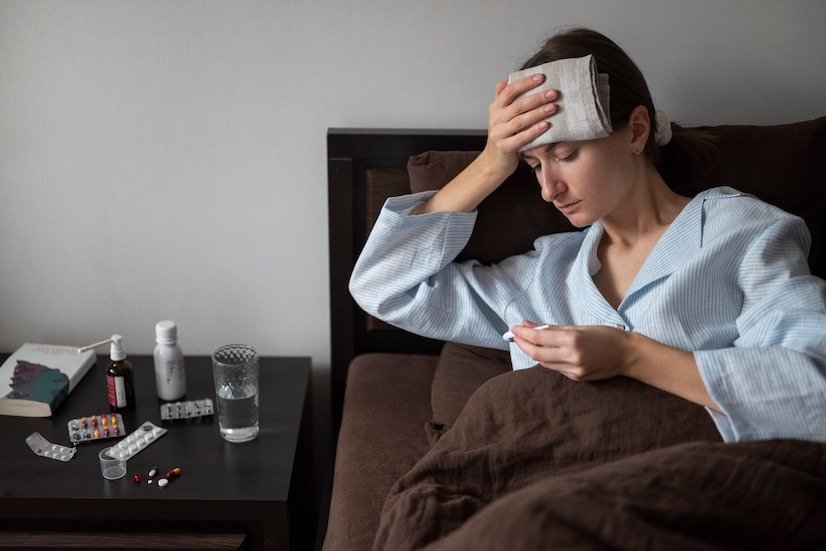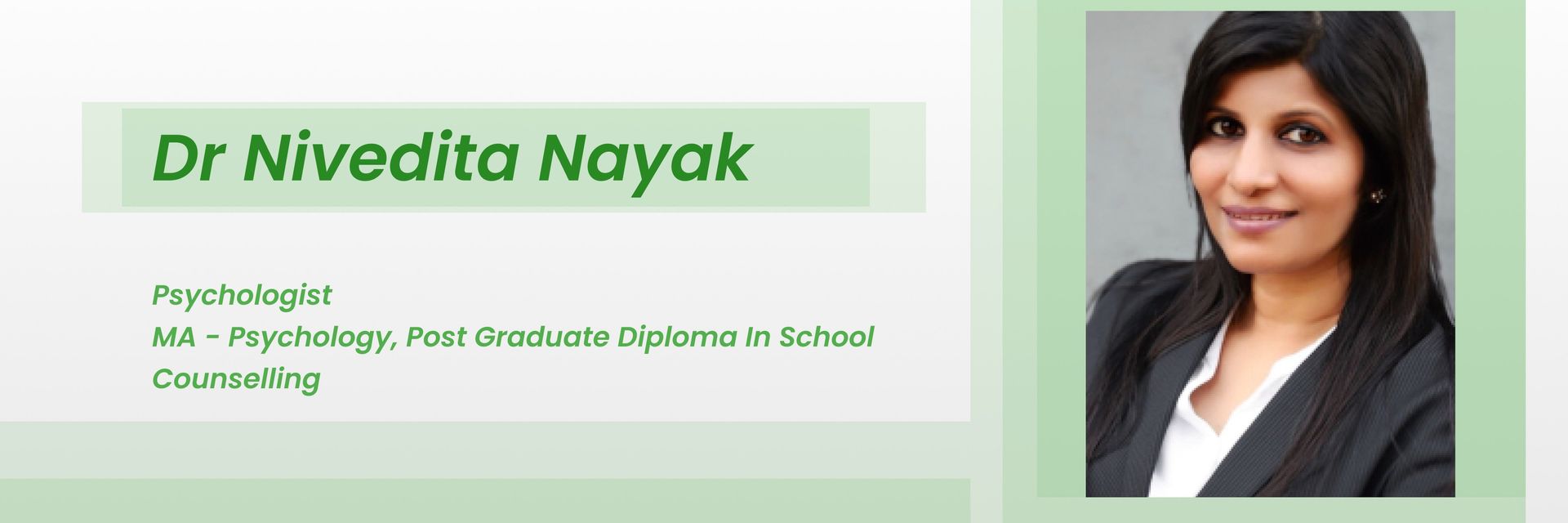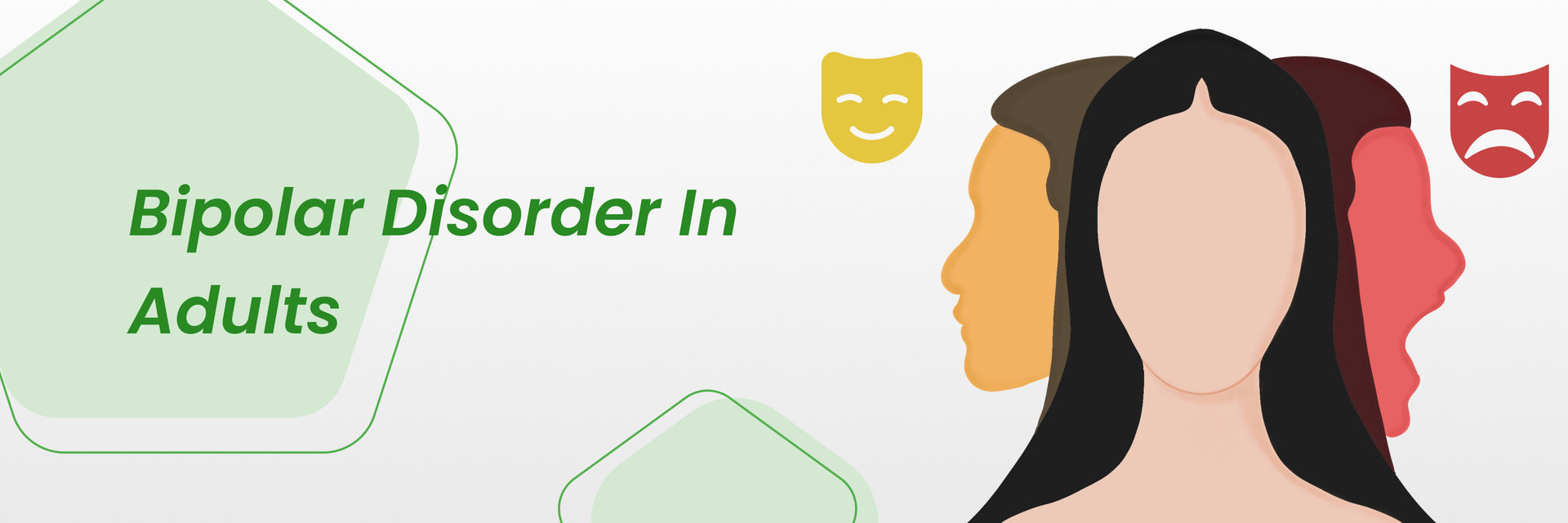Overview
Have you ever wondered why anxiety still lingers after you’ve quit smoking?
Post-quitting anxiety is common because your body and brain are adjusting to life without nicotine. Nicotine boosts dopamine, which makes you feel good, so without it, your brain takes time to balance out, leading to anxiety. Additionally, the routines and habits associated with smoking leave a void, making it harder to cope with everyday stress—about 25% of people who quit smoking experience significant anxiety within the first few months.
Dr. Vikas Patel, a reputed Psychiatrist, in Ludhiana, states that 40% of ex-smokers reported increased anxiety within 2-3 months after quitting. People with pre-existing anxiety disorders are more likely to experience heightened anxiety after quitting smoking.
Are you struggling with anxiety after quitting smoking? Consult with the best mental health specialists for personalized care.
Why do people experience anxiety months after quitting smoking?

The changes in the brain's reward system cause anxiety months after quitting smoking. Nicotine present in cigarettes stimulates the release of dopamine in the brain, which gives a feeling of pleasure. When someone quits smoking, the brain’s reward system undergoes significant changes.
The brain’s prefrontal cortex, responsible for decision-making and impulse control, receives inputs from two regions:
- Amygdala: Involved in fear and anxiety.
- Ventral tegmental area: Associated with reward and motivation.
When a person quits smoking, the prefrontal cortex receives less input from the ventral tegmental area. This leads to reduced feelings of reward and motivation. At the same time, the prefrontal cortex receives more input from the amygdala, causing increased feelings of fear and anxiety.
Read below to learn about the symptoms!

What are common symptoms of anxiety due to quitting smoking?
Anxiety is one of the common withdrawal symptoms that people may experience after quitting smoking.
Here are some of the common symptoms of anxiety after quitting smoking:
- Feeling restless, tense, or irritable
- Difficulty concentrating or focusing
- Racing heartbeat or palpitations
- Feeling short of breath
- Sweaty palms or feeling clammy
- Gastrointestinal problems like stomach cramps, nausea, or diarrhea
- Difficulty sleeping
- Feeling fatigued or exhausted
- Changes in appetite
Coping strategies for anxiety months after quitting smoking

Quitting smoking can cause emotional and physical reactions. People who try to quit smoking experience depression and anxiety during the early stages of quitting. This can increase the chances of relapse. Hence, it is important to acknowledge your feelings and find ways to cope with them.
The coping techniques include the following:
- Being active- Staying active and exercising distracts you from the urge to smoke. As per research, exercise helps in coping with and treating depression.
- Set goals for yourself- Set realistic goals and break them into manageable tasks. Use the SMART goals technique to stay focused and motivated.
- Stay motivated- Find things that keep you interested and motivated. When you feel anxiety months after quitting smoking, remind yourself that you miss smoking mostly because it was an addiction. Always keep in mind that you will eventually overcome this feeling.
- Find things to divert your mind- Make a list of things that you can do right away when you feel like smoking. You can try solving puzzles or calling a friend. Doing something different can help you break away from negative thoughts and urges.
- Support groups- Be with people who make you happy. You can also join a support group to meet other people trying to quit smoking. This will reduce your loneliness and help you control the urge to smoke.
Want to inquire about personalized treatment expenses? Don't hesitate. Consult with a top psychiatrist today for expert guidance and support.
Treatment Options for Anxiety Months After Quitting Smoking
Anxiety can be a common symptom experienced by individuals who have recently quit smoking. Here are some effective treatment options:
- Cognitive Behavioral Therapy (CBT): This helps individuals learn coping skills to manage anxiety and other negative emotions. CBT is one of the most effective ways to treat anxiety in people who have quit smoking.
- Medications: Antidepressants and anxiolytics may be prescribed to help manage anxiety symptoms. These medications should only be taken under the guidance of a healthcare provider.
- Nicotine Replacement Therapy (NRT): This technique helps manage anxiety symptoms after quitting smoking. NRT products, such as nicotine gum, patches, or lozenges, can help reduce nicotine cravings and withdrawal symptoms.
- Mindfulness and Relaxation Techniques: Practices such as meditation, deep breathing exercises, and yoga can help reduce anxiety and promote relaxation.

What are some lifestyle changes to reduce anxiety months after quitting smoking?
Making certain lifestyle changes can help reduce anxiety months after quitting smoking. Here are a few examples:
1. Regular exercise- This helps reduce stress and anxiety. This helps you stay busy and distracted when you have the urge to smoke.
2. Balanced diet- A balanced diet can help regulate mood and reduce anxiety. Eat plenty of fruits, vegetables, whole grains, and lean protein.
3. Good sleep- Getting enough quality sleep is important for physical and mental health. Develop good sleep habits like:
- Going to bed at the same time every night
- Avoiding screens before bedtime
- Creating a calming sleep environment
4. Mindfulness techniques- These can help reduce stress and anxiety by calming your mind. These include:
- Deep breathing
- Meditation
- Yoga
5. Social support- Spend time with supportive friends and family. This helps to reduce stress, loneliness, and depression. It will give you a sense of community and encouragement when you meet people trying to quit smoking.
Want to inquire about personalized treatment expenses? Don't hesitate. Talk to us today for expert guidance and support.
How long does anxiety last after quitting smoking?
- Varies from Person to Person: The duration of anxiety after quitting smoking can differ greatly among individuals.
- For some, symptoms may last for a few days or weeks.
- For others, symptoms might persist for several months.
- Severity of Anxiety: The intensity of anxiety can also vary, ranging from mild to severe.
- Impact of Major Change: Quitting smoking is a significant life change, and experiencing anxiety during this time is very common.
Can nicotine replacement therapy help with anxiety after quitting smoking?
Yes, nicotine replacement therapy (NRT) can help with anxiety months after quitting smoking. It reduces anxiety and withdrawal symptoms by delivering nicotine to the body in a less harmful way. However, it is important to use NRT as a healthcare provider directs. Using it too much or for too long can have negative health effects.
The Importance of a Support System When Dealing with Anxiety After Quitting Smoking
Having a support system is crucial when dealing with anxiety after quitting smoking. It is important to have people who can offer emotional support, encouragement, and motivation during this challenging time. Friends and family members can be a great source of support, but joining a support group of people going through the same experience can also be beneficial.
Support groups offer a safe space to share your feelings, receive advice, and learn coping strategies from others who have successfully quit smoking. They can also provide a sense of community and help fight feelings of isolation and loneliness.
FAQs
What should I do if my anxiety worsens after quitting smoking?
- If your anxiety worsens, it's important to seek professional help. A healthcare provider can offer personalized treatment options.
Is it normal to have panic attacks after quitting smoking?
- Yes, some people may experience panic attacks due to nicotine withdrawal and changes in brain chemistry. Consult a doctor if this happens frequently.
Can dietary changes help reduce anxiety after quitting smoking?
- Yes, a balanced diet rich in fruits, vegetables, and whole grains can help stabilize your mood and reduce anxiety.
How can exercise help manage anxiety after quitting smoking?
- Regular exercise releases endorphins, which can improve mood and reduce anxiety. It also helps distract from cravings and stress.
Are there any natural remedies for anxiety after quitting smoking?
- Yes, natural remedies like herbal teas (e.g., chamomile), essential oils (e.g., lavender), and supplements (e.g., magnesium) can help alleviate anxiety symptoms. Always consult a healthcare provider before trying new treatments.
Reference
https://www.hunimed.eu/news/answer-smoking-anxiety-withdrawal-symptoms-lies-within-brain-2/






